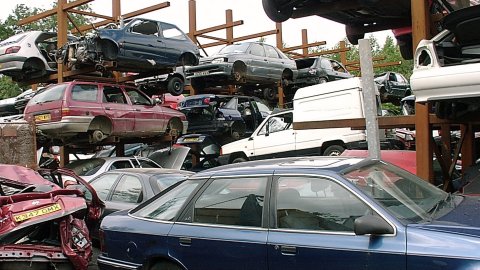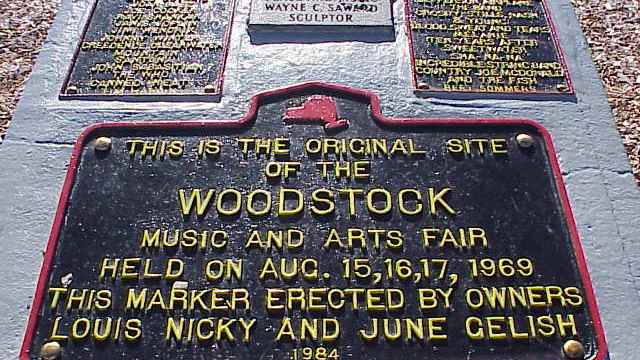Cash For Clunkers Backfires in Germany

Back in February, White House environmental advisor Van Jones discussed a “Cash for Clunkers” program on BigThink as an effective tool for promoting clean energy. The plan, which provides drivers with rebate checks when they upgrade to more fuel-efficient cars, came into fruition earlier this summer and received additional Senate funding last week.
It’s a seemingly foolproof greening scheme that Western European nations had been employing for several months, successfully boosting auto sales and easing recession pain. But the trade-in program is actually doing more harm than good in Germany.
The Cash for Clunkers program caused auto sales in Germany to shoot up 40 percent in March. What proponents of the program didn’t realize, however, is that a portion of the “clunkers” – extremely fuel-inefficient vehicles – have been stolen or bought from scrap yards and resold in Eastern European and African countries; some have even made their way back to Germany.
In effect, the German government has been funding the increase of pollution in poorer nations.
The simple solution to such a problem — the solution adopted by the US and other nations — is to safeguard against the reselling of clunkers by forcing dealers to destroy their engines.
So why didn’t Germany do the same? Destroying an old car’s engine, a complicated process, creates its own economically destructive ripple effect: The recycling companies who buy and process the dead clunkers must go to greater lengths to make use of the car’s remaining parts, all of which are less valuable than its engine. Destroying the cars’ engines makes it even more difficult for scrapyards, who are already experiencing tough times, to earn a profit.
The car-wrecking services get the short end of the stick and are crossing their fingers to see the end of the program. Environmental conscience aside, it’s almost easy to see why pawning off the clunkers for resale is a more appealing option than completing the scrapping process for struggling German scrapyard owners.





